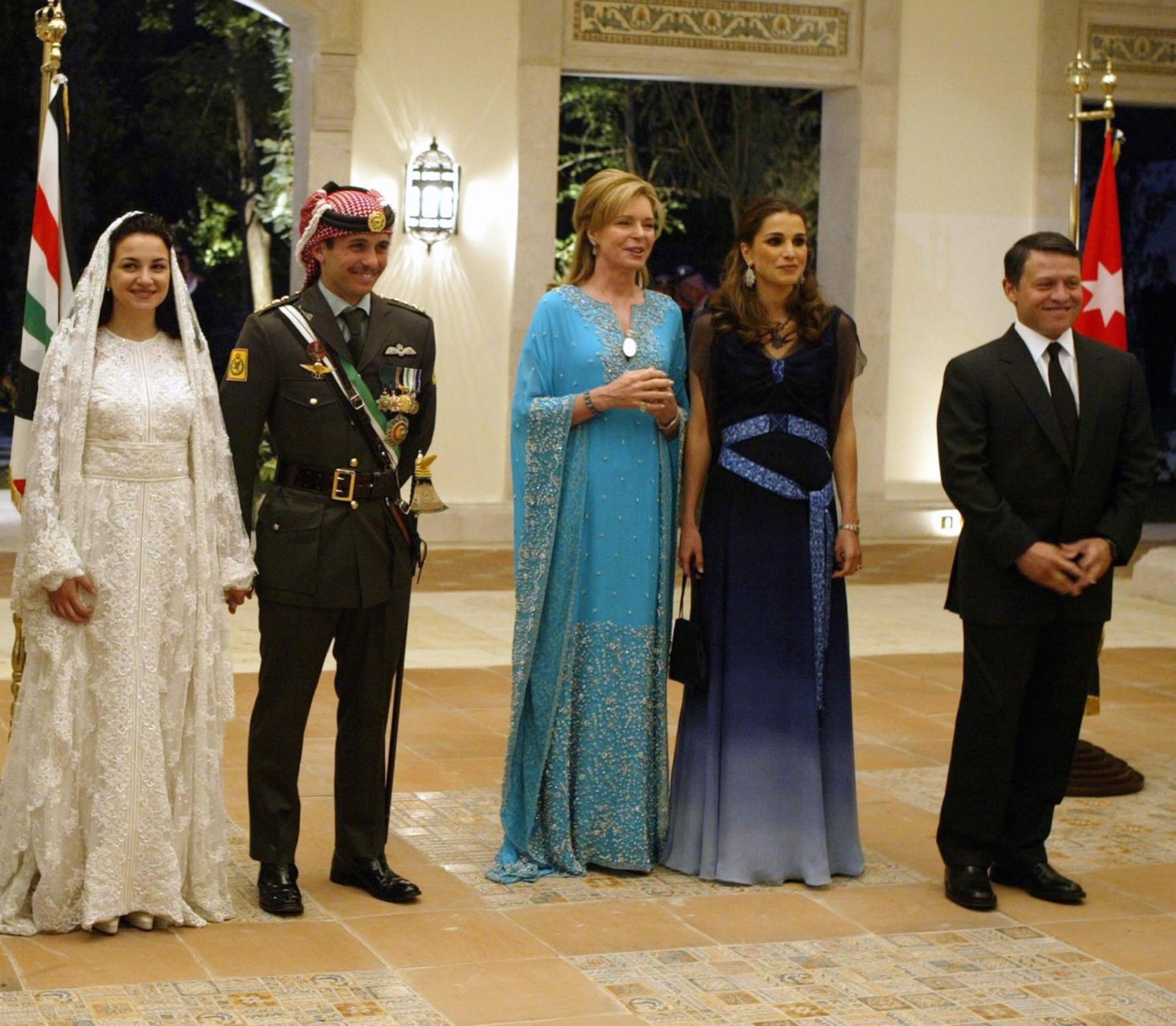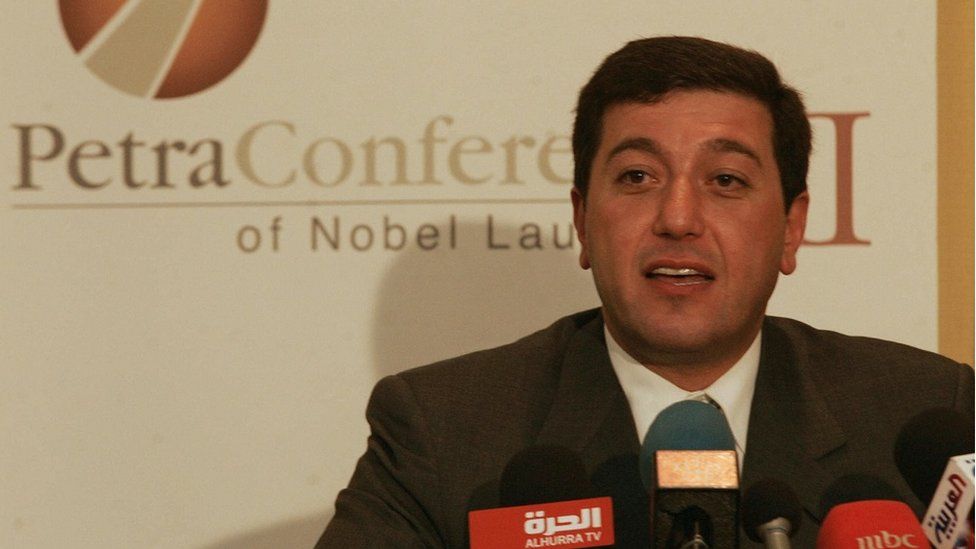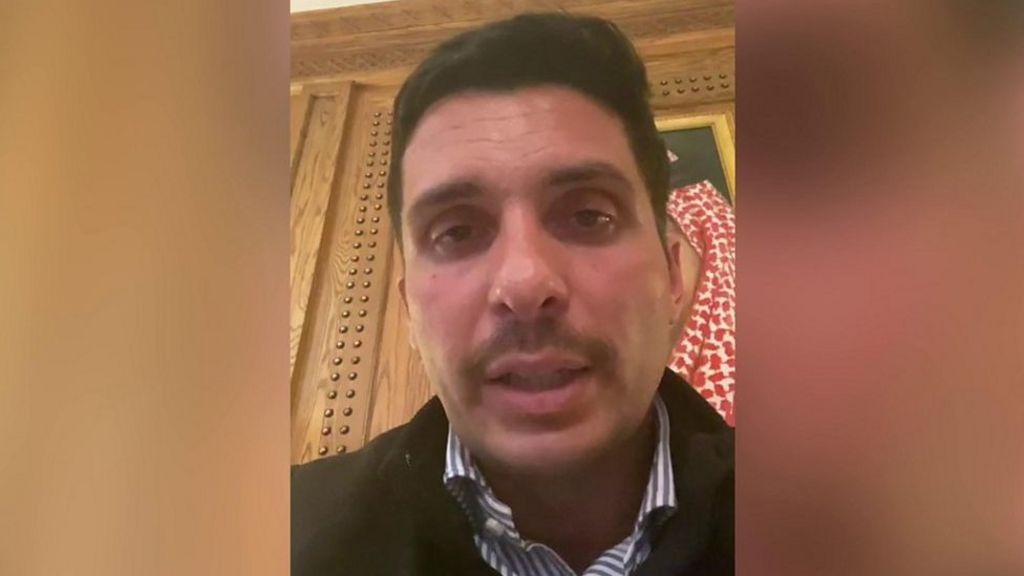Jordan’s Prince Hamzah bin Hussein ‘under house arrest’
The former crown prince of Jordan says he has been placed under house arrest as part of a crackdown on critics.
In a video passed to the BBC by his lawyer, Prince Hamzah bin Hussein, the half-brother of King Abdullah, accuses the country’s leaders of corruption, incompetence and harassment.
It comes after a number of high-level arrests said to be linked to an alleged coup plot.
The military earlier denied Prince Hamzah was under house arrest.
But it said he had been ordered to stop actions that could be used to target Jordan’s “security and stability”.
The move apparently comes after a visit by the prince to tribal leaders where he is said to have garnered some support.
Prince Hamzah has denied any wrongdoing and said he was not part of any conspiracy.
Meanwhile, regional powers including Egypt and Saudi Arabia have voiced support for King Abdullah. The United States, which is allied with Jordan in its campaign against the Islamic State (IS) group, described the monarch as a key partner who has its full support.
Jordan has few natural resources and its economy has been hit hard by the pandemic. It has also absorbed waves of refugees from the civil war in neighbouring Syria.
What does the prince say?
In the video recorded on Saturday, he says the chief of the general staff told him he was not allowed to go out or communicate with people because of criticisms of the government or king voiced at meetings where he had been present.
He says he was not accused of making the criticisms himself.
However, he went on to say: “I am not the person responsible for the breakdown in governance, the corruption and for the incompetence that has been prevalent in our governing structure for the last 15 to 20 years and has been getting worse… And I am not responsible for the lack of faith people have in their institutions.
“It has reached a point where no one is able to speak or express opinion on anything without being bullied, arrested, harassed and threatened.”
High-level political arrests are rare in Jordan.
Its powerful intelligence agency has gained extra powers since the coronavirus pandemic began, drawing criticism from rights groups.
This is a royal crisis that appears to have spun badly out of control. While Jordan’s royals are not the first of the world’s royal families to experience that this year, Jordan does have some unique problems of its own.
Its economy, already challenged before the advent of Covid, is in poor shape and there is rising public dissatisfaction. Now, in a video message reminiscent of the one from Dubai’s imprisoned Princess Latifa, the son of Jordan’s late King Hussein has accused his government of corruption, nepotism and incompetence.
He says all his staff have been arrested, he and his family have been placed under house arrest in the al-Salaam Palace outside Amman and his communications have been restricted.
In the video, passed to the BBC, he describes a country gripped by fear where anyone who criticises the government risks arrest by the secret police.
Who is Prince Hamzah?
The oldest son of the late King Hussein and his favourite wife Queen Noor, Prince Hamzah is a graduate of the UK’s Harrow School and the Royal Military Academy at Sandhurst. He also attended Harvard University in the US and has served in the Jordanian armed forces.
He was named crown prince of Jordan in 1999 and was a favourite of King Hussein, who often described him in public as the “delight of my eye”.
However, he was seen as too young and inexperienced to be named successor at the time of King Hussein’s death.
Instead his older half-brother, Abdullah, ascended the throne and stripped Hamzah of the title of crown prince in 2004.
The move was seen as a blow to Queen Noor, who had hoped to see her eldest son become king.
 IMAGE COPYRIGHTGETTY IMAGES
IMAGE COPYRIGHTGETTY IMAGES
Who else has been arrested?

Others detained on Saturday include Bassem Awadallah, a former finance minister, and Sharif Hassan Bin Zaid, a member of the royal family.
Mr Awadallah, an economist who was educated in the US, has been a confidant of the king and an influential force in Jordan’s economic reforms.
He has often found himself pitted against entrenched government bureaucracy resistant to his plans.








